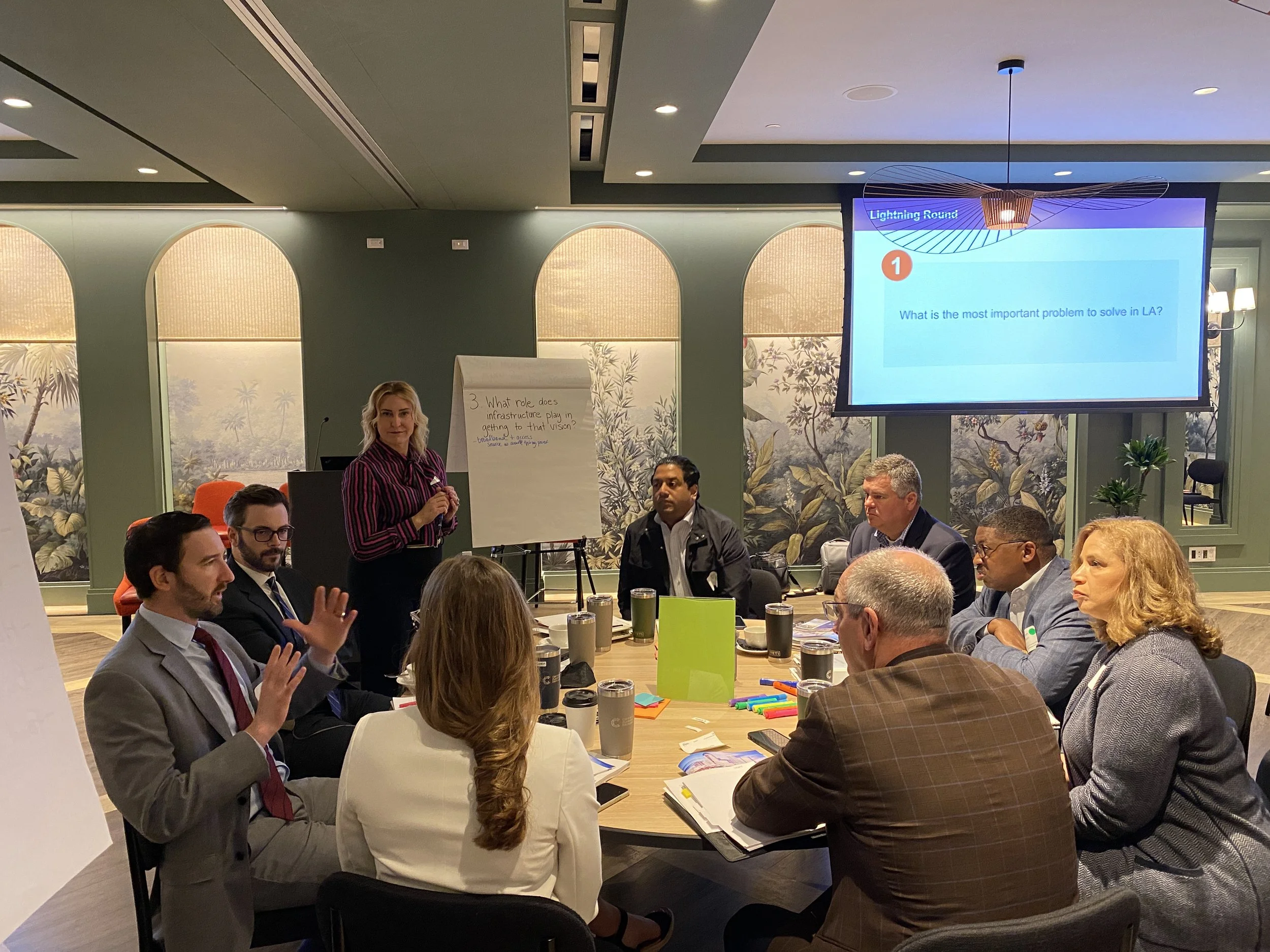The City of Gonzales recently became the second city in Louisiana to develop its own climate action plan. Gonzales is leading by example and has taken this step toward climate resilience with an even larger goal in mind: aligning their efforts with Louisiana’s Climate Action Plan to reduce greenhouse gas emissions by 40-50% by the year 2030, and to have net-zero emissions by 2050.
Events like the Summit show us that, even if change doesn’t happen all at once, it is still happening. Each time a street gets a new bike lane, we create an opportunity to lower emissions. Each time a new solar panel begins operations, a percentage of our energy portfolio gets cleaner. These little battles aren’t always gratifying, but they are the correct and necessary path to create a cleaner environment in years to come. The Smart Growth Summit brings us together to remind us of that, to reinvigorate our efforts, and to give us hope for the future.
Whether by inland rivers, stormwater, or coastal storm surge, Louisiana is facing increased risk from both the magnitude and frequency of flood events. Dubbed the Great Flood of 2016, Louisiana experienced two historic rain events that impacted 56 of Louisiana's 64 parishes and highlighted statewide vulnerabilities and exposed the lack of water and land management. More than 145,000 rental and owner-occupied homes across the state were flooded–an estimated $10 billion in damages. These historic flooding events exposed deficiencies in floodplain management approaches at all levels of government.
This past summer was hot! So much so that June was recorded as the region’s hottest on record. High fuel prices and rapidly rising energy costs have meant that staying cool amidst record-breaking heat is a lot more expensive. Though we’ve all been feeling the pinch of high energy bills, it is a much greater hardship for residents living on low or fixed incomes. Many families and individuals with limited resources are also living in older homes that are not optimized for energy efficiency, driving utility costs even higher for those who can least afford it. Moreover, things like inadequate air conditioning, poorly sealed doors and windows, and insufficient insulation also affect our health – negatively impacting air and sleep quality and overall well-being.
As a city planner, a Baton Rouge native, and a parent, I spend a lot of time thinking about the future of this place that I love. My goal is to build a safe, healthy community where all residents can thrive and newcomers can find plentiful opportunities. I want my kids and future grandkids to enjoy a vibrant, productive life in a strong and resilient city. I know that others share this vision, and if we are to achieve this future for the Baton Rouge region, we have to choose right now to work together to seize some big, exciting opportunities.
I recently met a resident of Marksville who after some years in D.C. returned to his hometown. Like so many others I have met throughout my work in Louisiana, he is bringing home a different perspective on quality of life, a can-do attitude, and what seems like endless energy to improve his hometown. So what is the appeal? I asked him this when we first met for a tour of the town. His answer wasn’t unfamiliar – in short: the quiet lifestyle and potential. I knew what he meant because it confirmed what I’ve been witnessing in central Louisiana: older communities with rich histories and good bones that are eager for revitalization.
Last week, the Supreme Court ruled 6-3 to restrict the ability of the Environmental Protection Agency to regulate carbon emissions. In a nutshell, the EPA no longer has the authority to mandate that energy companies shift to cleaner sources in order to cap carbon emissions. That responsibility now falls to Congress – a political body beholden to many interests other than understanding and curbing climate change effects.
In honor of National Bike Month, CPEX connected with Lynley Farris from Bike Baton Rouge to discuss the great work they are doing in our community and the importance of promoting bicycle and pedestrian access. Lynley was named President of Bike Baton Rouge in November 2021 -- the first woman to hold the position -- and she also contributes to our award-winning parks and greenways system as the publicity and marketing manager for BREC.
In his address to state leaders and agency executives at the Resilient Infrastructure Workshop held in March, Governor John Bel Edwards described the Infrastructure Investment and Jobs Act as a “once in a generation opportunity to realize a more resilient and equitable future by strengthening Louisiana’s built environment and positioning the state for future economic success,” and issued a call to take action, stating, “We all have a role to play, and we must rise to the occasion.”









